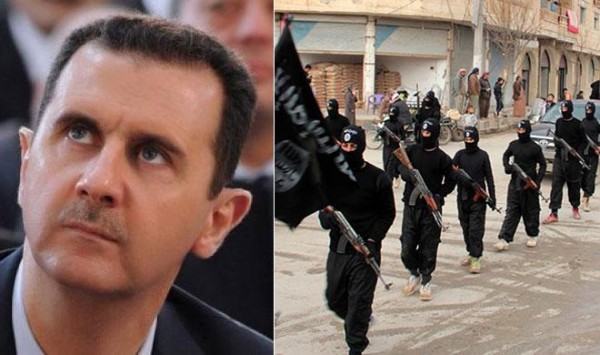 By: Brendan Nicholson
By: Brendan Nicholson
It is “madness” for the US-led coalition to fight the Islamic State terror group in Syria without a strategy to also unseat the Assad regime, says former George W. Bush adviser Elliott Abrams.
Now a senior fellow at the Council on Foreign Relations, Mr Abrams told guests at a dinner hosted by the Australia-Israel and Jewish Affairs Council in Canberra that President Bashar al-Assad had to be removed and Islamic State destroyed so moderates in Syria could be allowed to rebuild the country.
That would take years, he said. Mr Abrams, who met Tony Abbott on Monday on the eve of a decision by cabinet’s national security committee to extend RAAF airstrikes from Iraq into Syria, told an influential group of government officials and policymakers the US was urging its coalition partners to fight Islamic State but not the “vicious, murderous” Assad regime. “Well, this is madness at a time when the regime is killing tens of thousands of Sunni Syrians by, for example, dropping barrel bombs laced with chlorine,’’ Mr Abrams said.
“So the notion that you can defeat ISIS in league with Iran and ignoring the Assad regime I think is, let’s just say, illogical and won’t work. If we’re serious about defeating ISIS, we need to be serious about bringing the Assad regime, which is a recruiter for ISIS (through its behaviour) to an end.”
Mr Abrams said the Russians, who were sending weapons and other support to Assad, would have to be warned to stop.
The Russians should be told to keep their troops out of Syrian air bases and told that the coalition intended destroying Assad’s air force to stop him dropping barrel bombs on his people.
“That’s what it would take — a willingness to say to the Russians: ‘We’re not willing to tolerate barrel bombs slaughtering civilians. So we’re willing to destroy the Syrian air force. So you had better not have people at that air base.’ ”
Mr Abrams said there were thousands of more moderate Syrians fighting to protect areas they controlled without help from the Americans or anyone else.
While they’d been given little hope of holding on, these groups were still there. “They are alive and they have control of a piece of Syria,” he said. “Well, suppose we got serious about helping them.”
Peter Leahy, who commanded the Australian Army for six years covering previous campaigns in Iraq and Afghanistan and who is now director of Canberra University’s National Security Institute, said while he was not opposed to extending the bombing to Syria, it was not clear what the air campaign was supposed to achieve.
Professor Leahy said the coalition did not appear to be following a clear strategy.
No one had a clear idea of what was supposed to emerge at the end of the war, he said.
Foreign Minister Julie Bishop said the RAAF mission would target ISIS and not anyone else.
The campaign would be judged a success when Islamic State was no longer able to launch attacks on Syria or Iraq, Ms Bishop said.
The Australian
Leave a Reply
You must be logged in to post a comment.